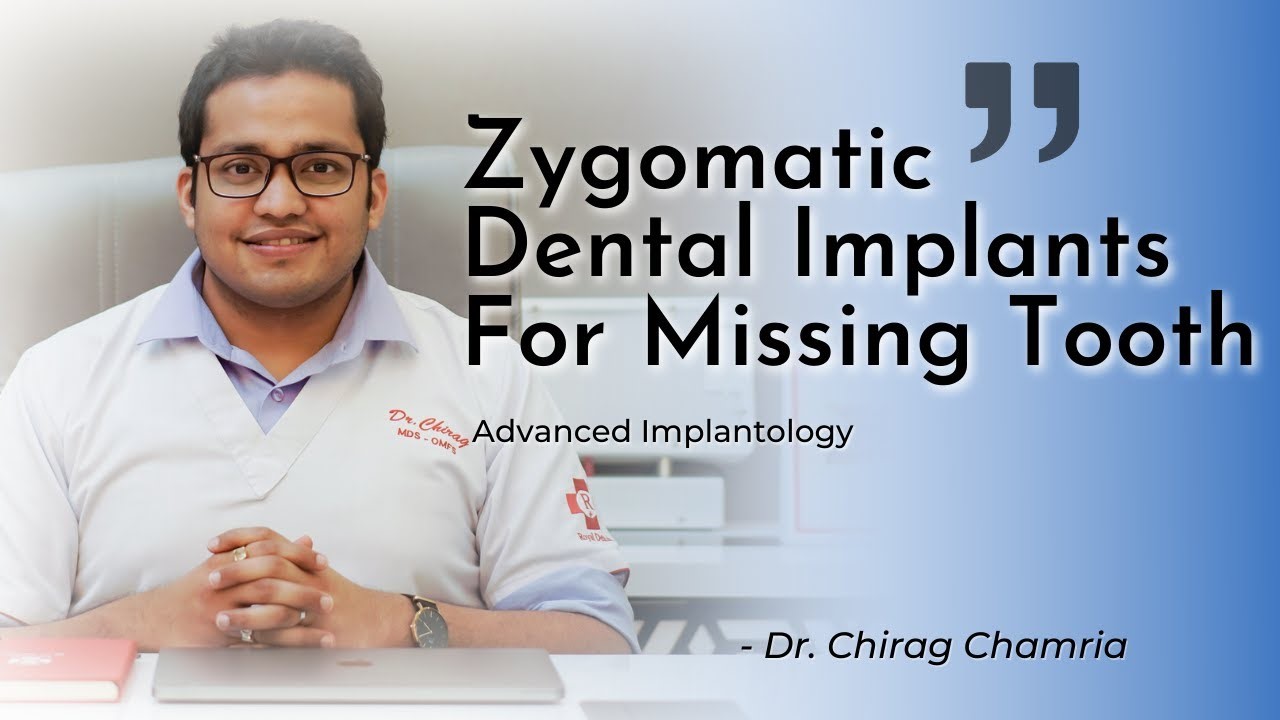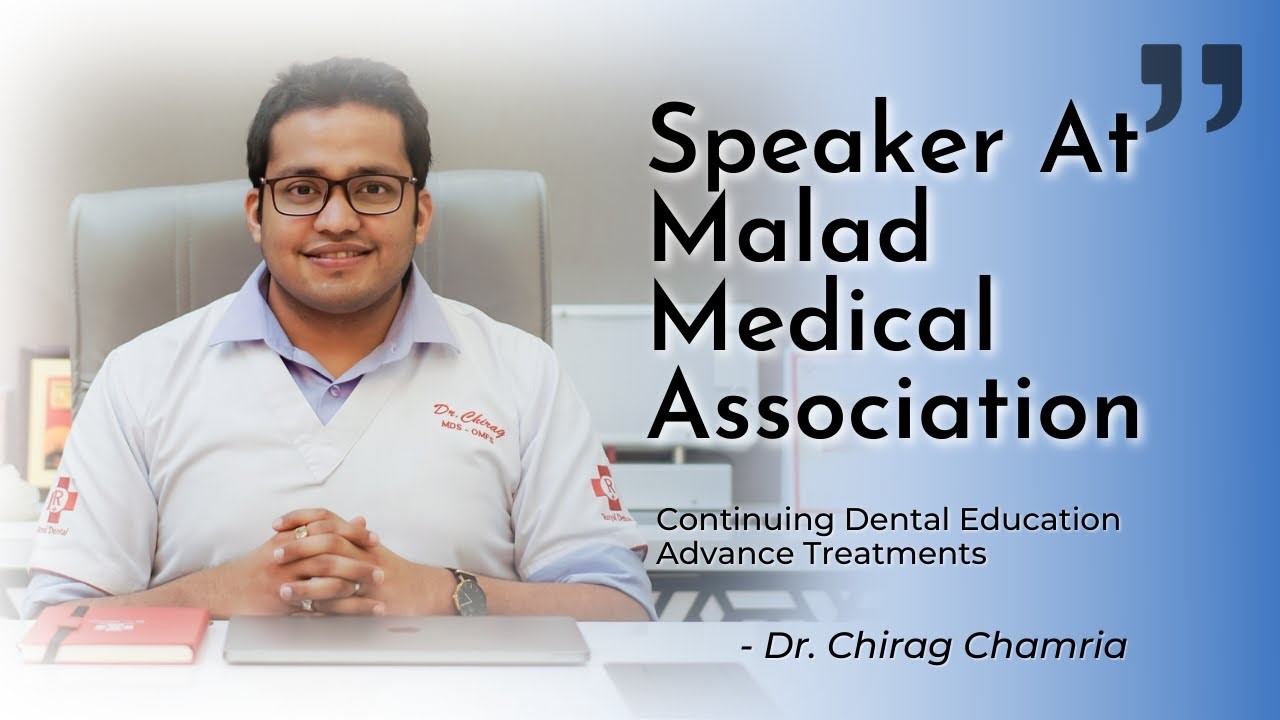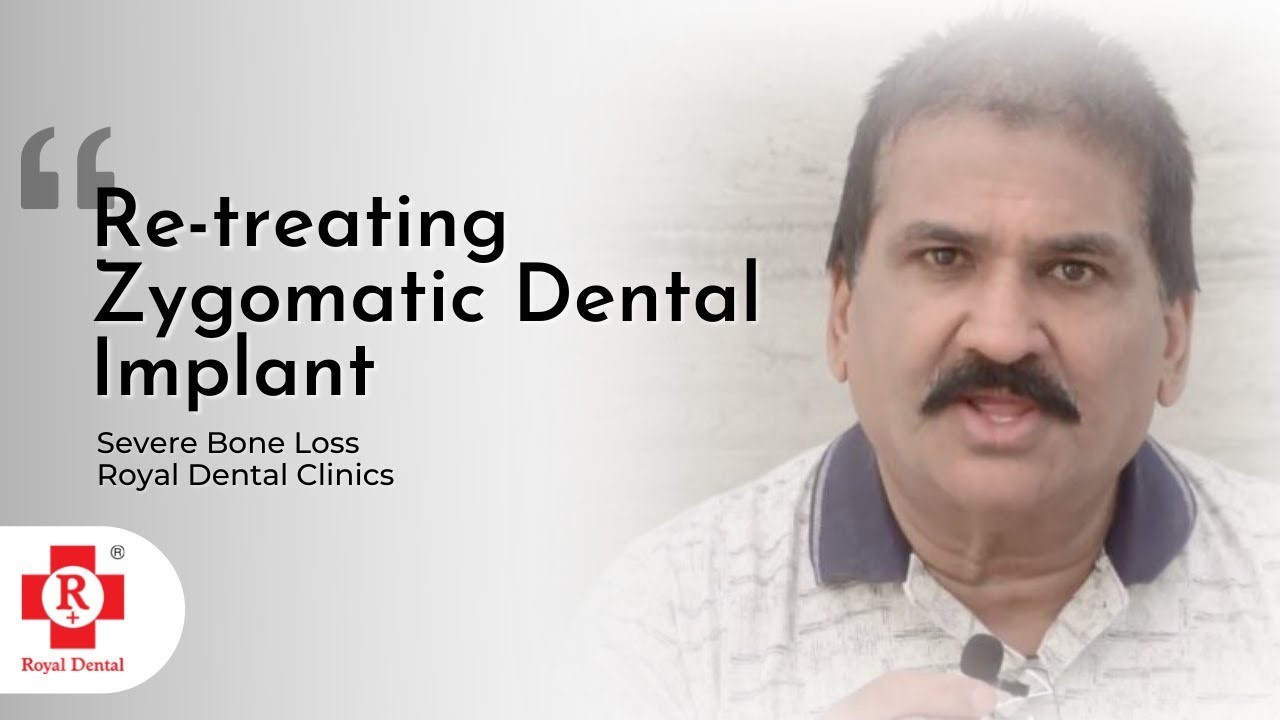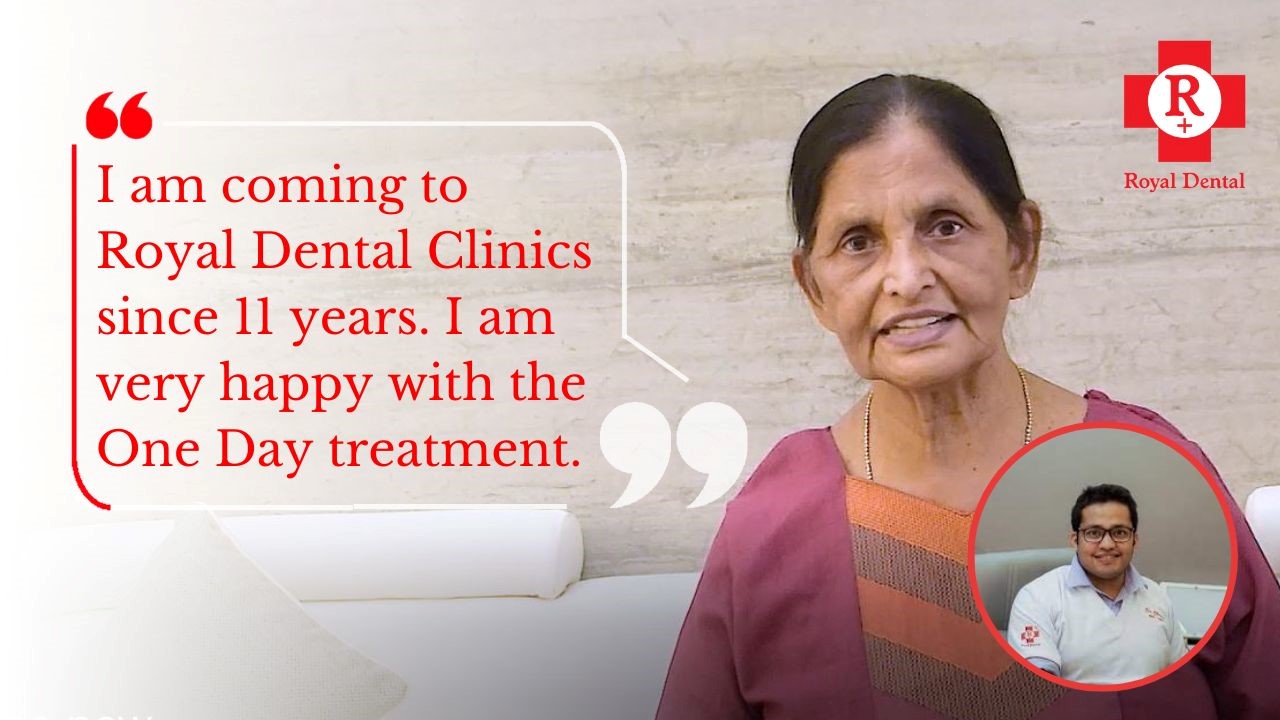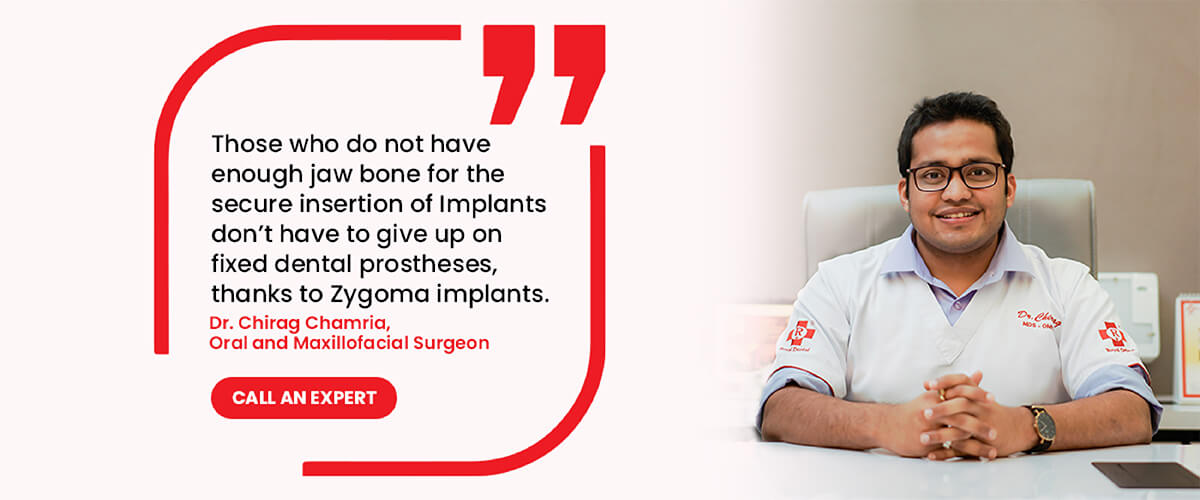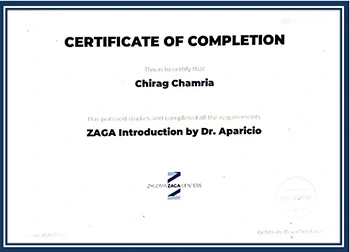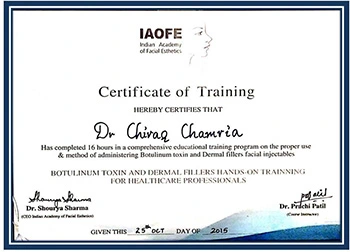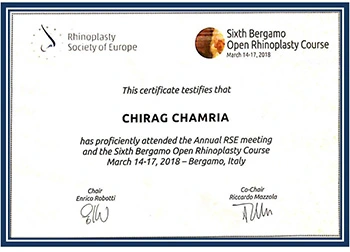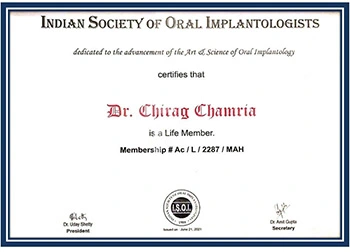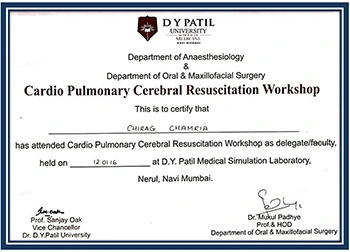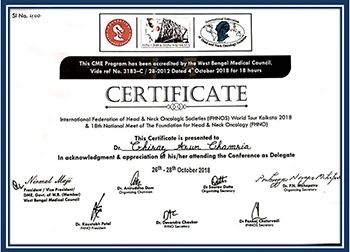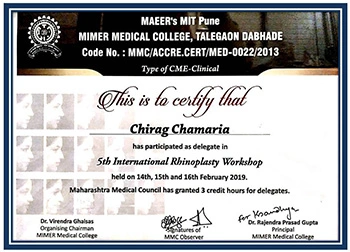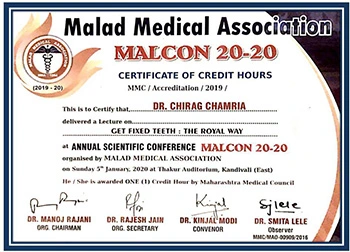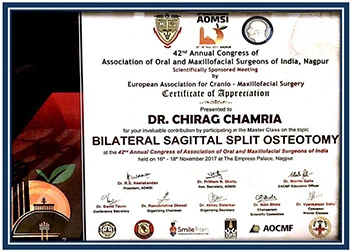In Virtually Less or No Bone, Get Zygomatic Dental Implant with Fixed Teeth. Call + 91-9820446633

Why Choose Zygomatic Dental Implant?
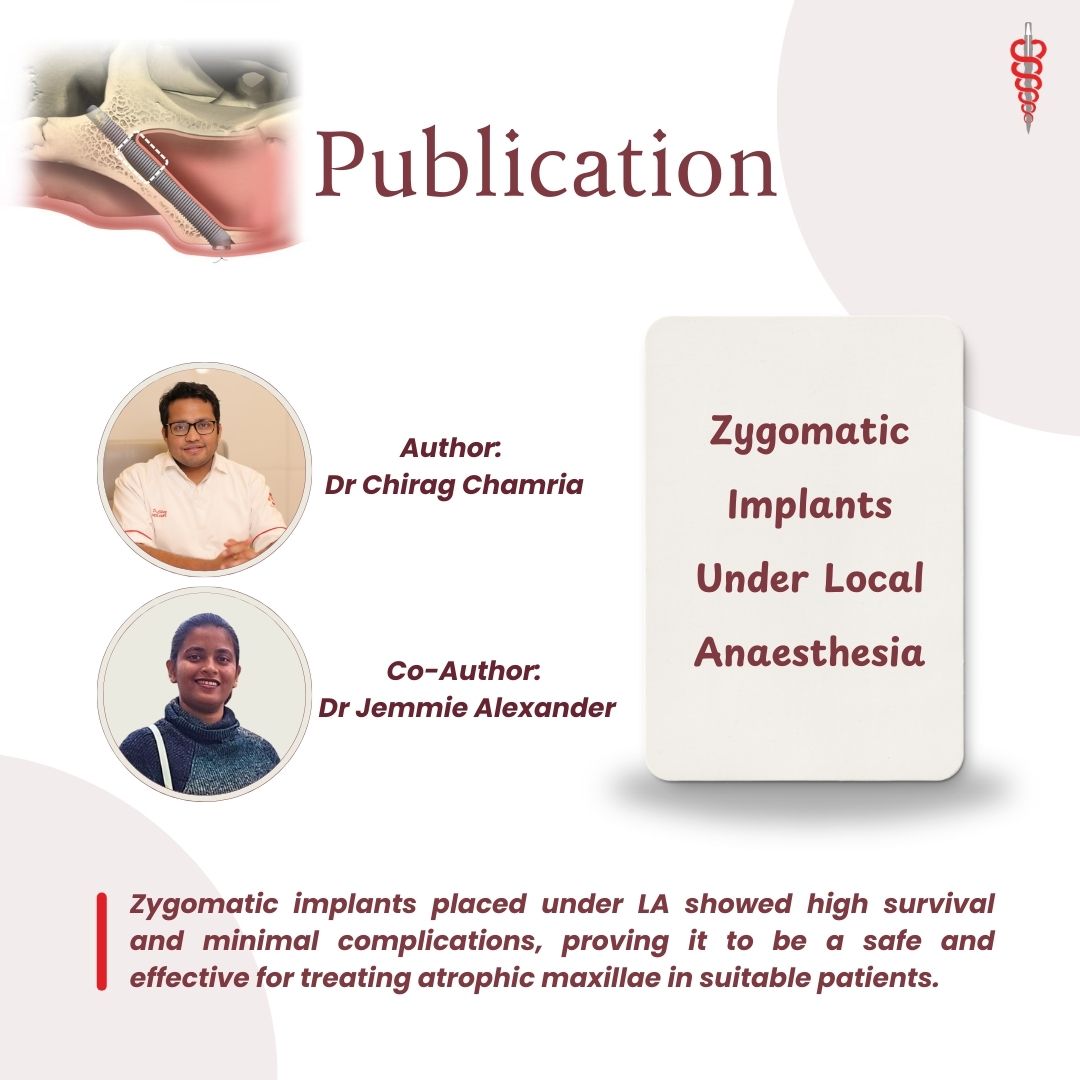
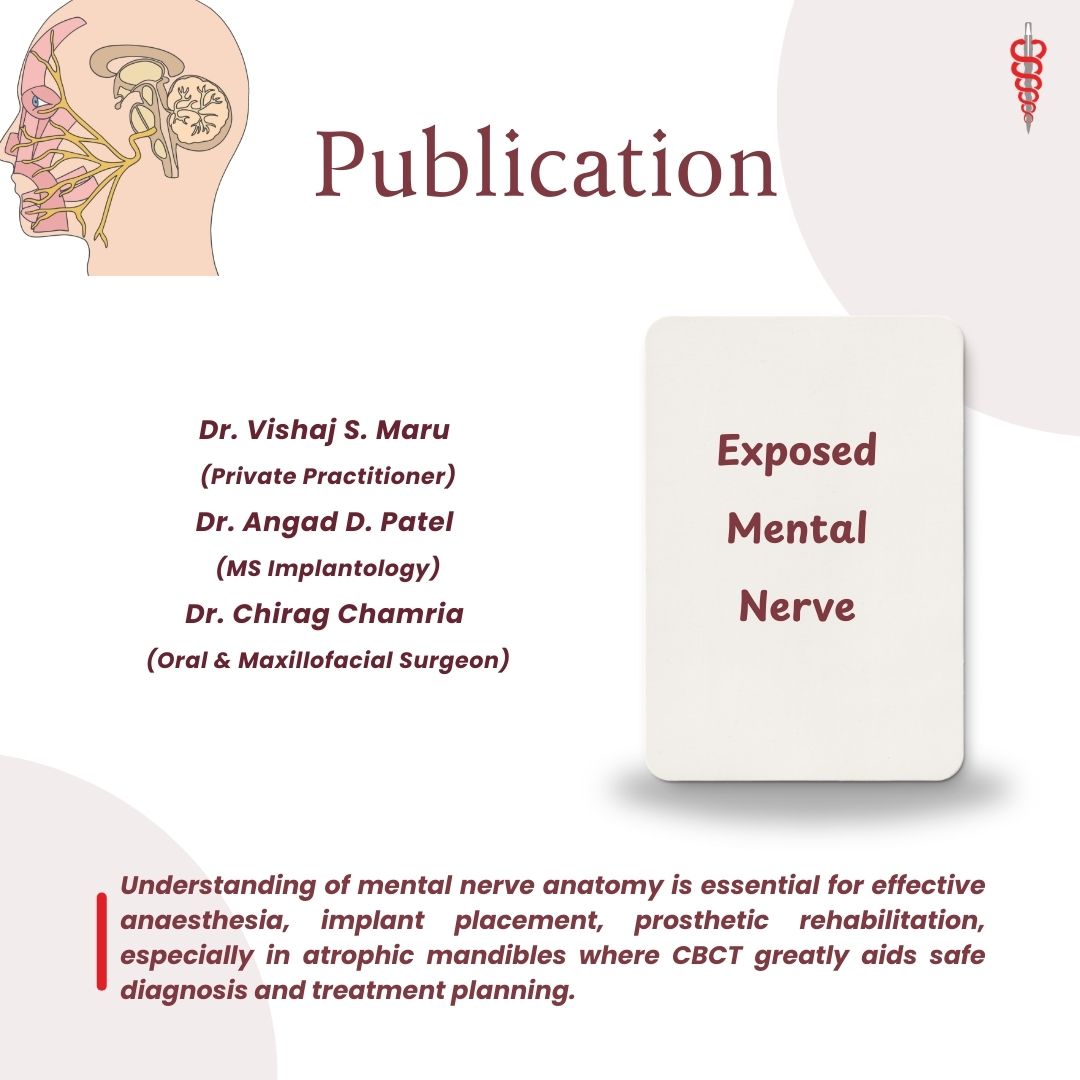
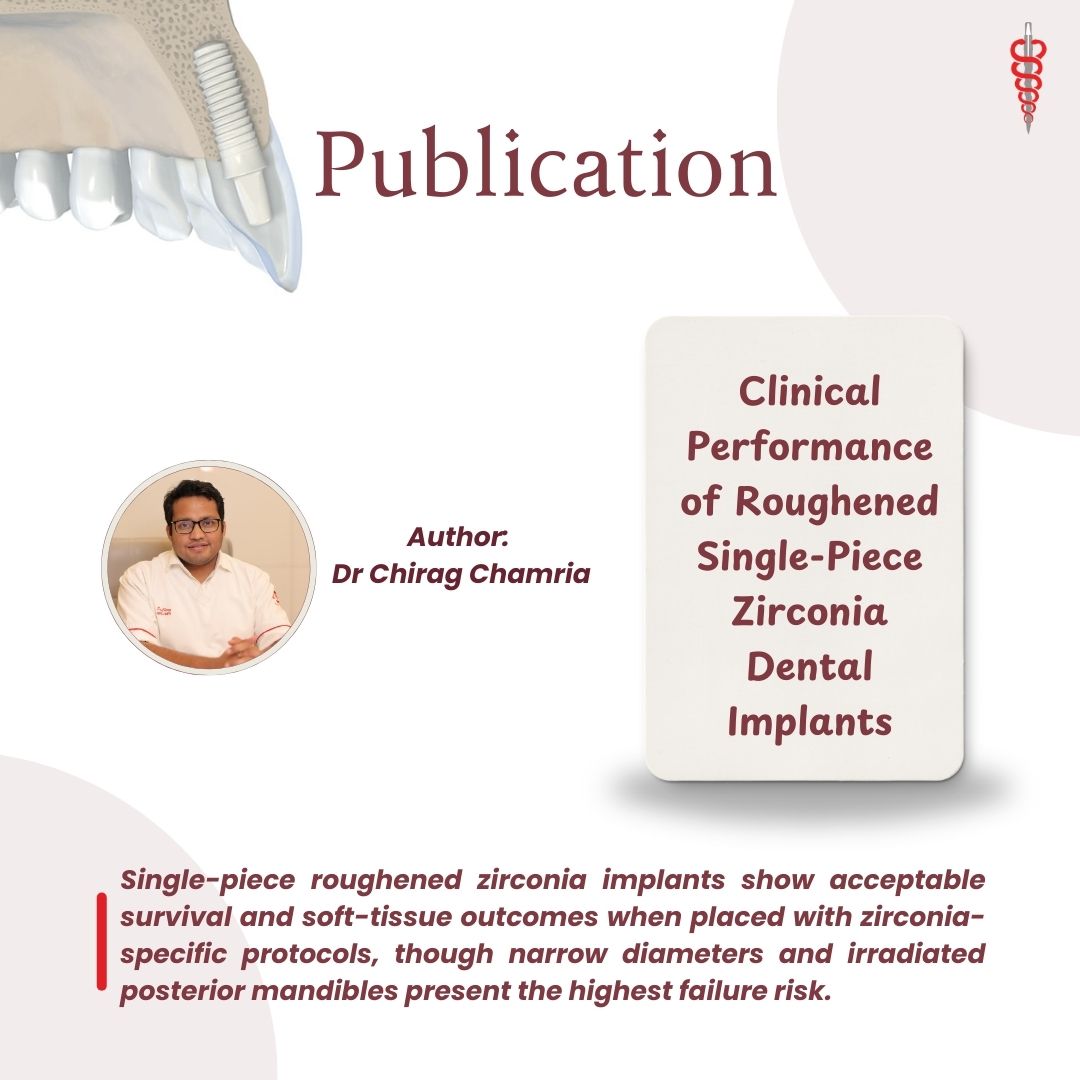
Why Choose Zygomatic Dental Implant?
Most patients above 45+ years end up losing a few or all of their teeth. It is estimated that 92% of adults between the ages of 20-64 years suffer from tooth decay in India. Likewise, the number of individuals who suffer from missing teeth is pretty high above 45+ years. Tooth decay, gum disease, poor oral hygiene, and injury, are common causes of missing teeth.
Royal Dental Clinics, Kandivali, Mumbai are proud to be at the forefront of zygomatic implant placements. Using the modern virtual surgical planning and surgical guides. In fact, because of the use of SAPTeethTM they are now able to restore the upper jaw with immediate load protocols. And give permanent fixed shock absorbable teeth.
These Implants used when there is insufficient bone to hold a normal dental implant in the upper jaw. The difference between a Zygomatic Implant and a normal dental implant is that the former is longer and placed diagonally into the cheek bone (Zygoma), to make use of the extra bone here. This bone usually does not resorb.
“Success of zygomatic implant in weak bone over 5 years has been around 96% and over 10 years has been around 93%.”
Dental Implants have been around since the 1950s and have been perfected by various Institutional bodies over the years. Certainly, a dental implant can do wonders for confidence, since it resembles an ordinary tooth. Numerous individuals who were timid about smiling as a result of space from loss of a tooth, feel better after a dental implant. Past the style, a dental implant additionally makes it simpler to eat and talk, as it is securely attached to the jaw.
Zygomatic Implant Dentist in Mumbai
Zygomatic Implants with Pinhole Technique in One day
The Zygomatic Implants are used for full mouth dental rehabilitation for severely resorbed bone. The traditional technique for implant placement was in the bone, but in cases with less or no bone, a Zygoma Implant recommended. Although, there is improvement in the quality of life of the patients, yet the invasive surgery involved needs to performed with utmost care.
Zygomatic Dental Implants anchored into the cheekbone, also known as Zygoma or Zygomatic Bone. These implants used in cases where the patient has a missing jawbone or the jawbone is soft and thin. Most patients above 45+ years end up losing a few or all of their teeth.
No Bone? Choose Hope
About Royal Dental Clinics
Royal Dental Clinics Kandivali, Mumbai, are proud to be at the forefront of zygomatic implants in one day using the modern virtual planning and surgical guides. In fact, because of the use of SAPTeeth™ they are now able to restore the upper jaw with immediate load protocols and give permanent Shock Absorbable Permanent Teeth.
Prior to the surgical procedure, the team at Royal Dental Clinics do a thorough and extensive examination to accurately create surgical models. They first take three-dimensional X-ray (CBCT) and pre-treatment photos; then stone plaster models of the patient’s teeth is prepared. This is necessary to accurately determine the implant placement and length required. These preparatory measures are completely painless for the patient and take only a few minutes. Use of customised implants may be needed in circumstances where the shock implants would be unable to bear the load.
With Zygomatic Implants offered at Royal Dental Clinics there is no need for a complex bone grafting operation, which can take up to six months to heal and several procedures to have full working teeth.
Zygomatic Implant in One Day: Patient Reviews
Zygomatic Dentist In Mumbai Restore Smiles In One Day.
Pre-Clinical Zygomatic Implant Steps
Step 1: On your first visit, you will provided a case paper. You must fill your Name, Age, Gender, Address and Occupation details & hand it over back to the receptionist.
Step 2: You inquired a number of questions by the attending dental surgeon and your case history recorded. Even though the attendant knows of your allergies, you should once again inform the attendant about any allergies.
Step 3: You examined and all necessary details for treatment planning recorded.
Step 4: In most cases, a CBCT scan taken with all details before your final Consultation.
Step 5: You explained the treatment options and plans with advantages and disadvantages. You have the liberty to ask as many relevant questions as you want.
Step 6: As a confirmation of your acceptance to the Terms and Conditions; you may sign the case paper and retain a copy with you at all times. At this stage you require to pay consultancy charges of INR 1500 or 25 US$.
Zygomatic Dentist In Mumbai Restore Smiles In One Day.
Step 7: Impression of both jaws taken. On your request we shall proceed with the plans discussed and agreed by you.
Step 8: Immediately within 2-5 minutes your model preparation would begin and in about 30 minutes your teeth model would be ready. Thereafter, your model scanned and a computer image of the model fed into the CAD machine for your digital teeth design.
Step 9: Within about 30-60 minutes your design would be ready and sent for machining. The CAM machine would prepare your final teeth in about 10-15 min per tooth. Simultaneously your upper and lower jaw teeth can prepared in multiple CAM machines which would reduce the net time to 50%.
Step 10: While your teeth preparation is on, you may feel comfortable in a waiting room with your relative and refreshments.
Zygomatic Dentist In Mumbai Restore Smiles In One Day.
Step 11: Thereafter; the area to be operated anaesthetised to give numbness during surgery/operation. If you are going for zygomatic implant; depending upon the severity of bone loss it may become necessary to take certain precautionary steps.
Step 12: In most cases, your final restoration is fixed on the same day or the next day. In some cases the fixation may be scheduled for some other day.
“Those who do not have enough jaw bone for the secure insertion of implants don’t have to give up on fixed dental prosthesis, thanks to Zygoma implants. With advanced Implantology; dental treatment for missing teeth in less or no bone can be completed in just One Day or a Single Sitting.”
Dr Chirag Chamria
About
Dr. Chirag Chamria, Oral & Maxillofacial Surgeon
Dr. Chirag Chamria is a Certified Oral and Maxillofacial Surgeon with extensive training in zygomatic implants, cosmetic dentistry, orthognathic surgery, full mouth and oral cancer rehabilitation. Dr. Chirag has completed his advanced studies in “Cancer Surgery” from University Medical Centre of Netherlands, Europe. His further progress concentrates in “Salivary Organ Sialography” from University of Switzerland at Geneva.
Dr Chirag Chamria is a Specialist in surgical planning of most cases related to Oral and Maxillofacial surgery and Dentistry. Royal Dental Clinics is honoured to have Dr Chirag as the Director & Maxillofacial Surgeon on board. As a Dental Surgeon, he is currently an attending Doctor at Royal Dental Clinics practising Oncology, Facial Aesthetics and Cosmetic Dentistry.
As per Dr. Chirag Chamria, Maxillofacial Surgeon at Royal Dental Clinics, “Those who do not have enough jaw bone for the secure insertion of implants don’t have to give up on fixed dental prosthesis, thanks to Zygoma implants. With advanced Implantology; dental treatment for missing teeth in less or no bone can be completed in just One Day or a Single Sitting.”
Feel Free to Book an Appointment with Dr. Chirag Chamria for your Dental Consultations.
International Conference on Dental Implant | Training Programs




Zygomatic Implants in One Day | Before After Xray
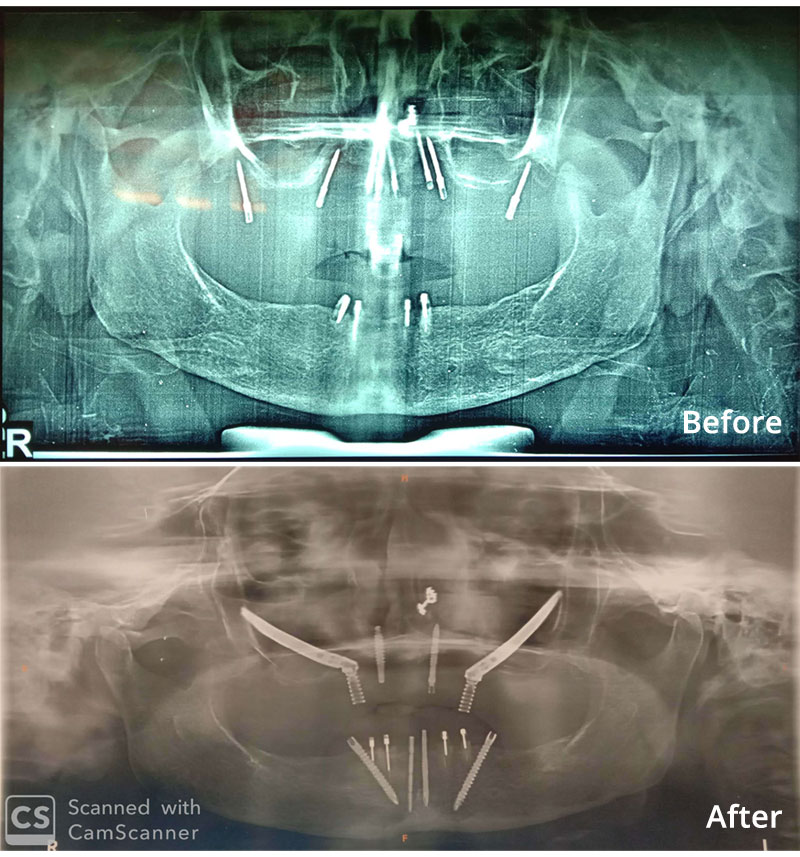
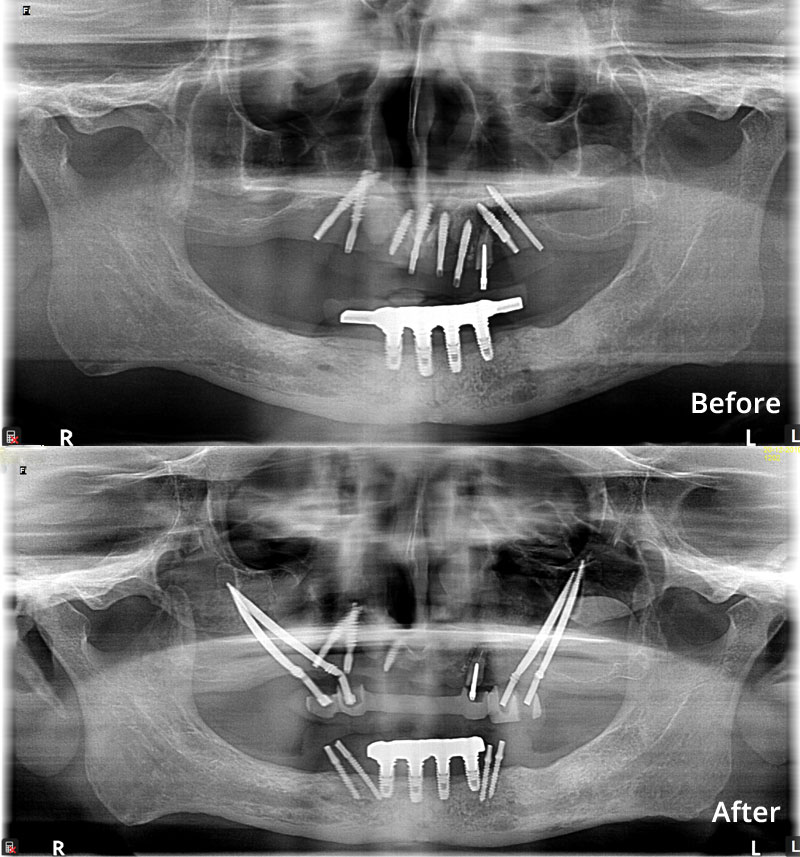
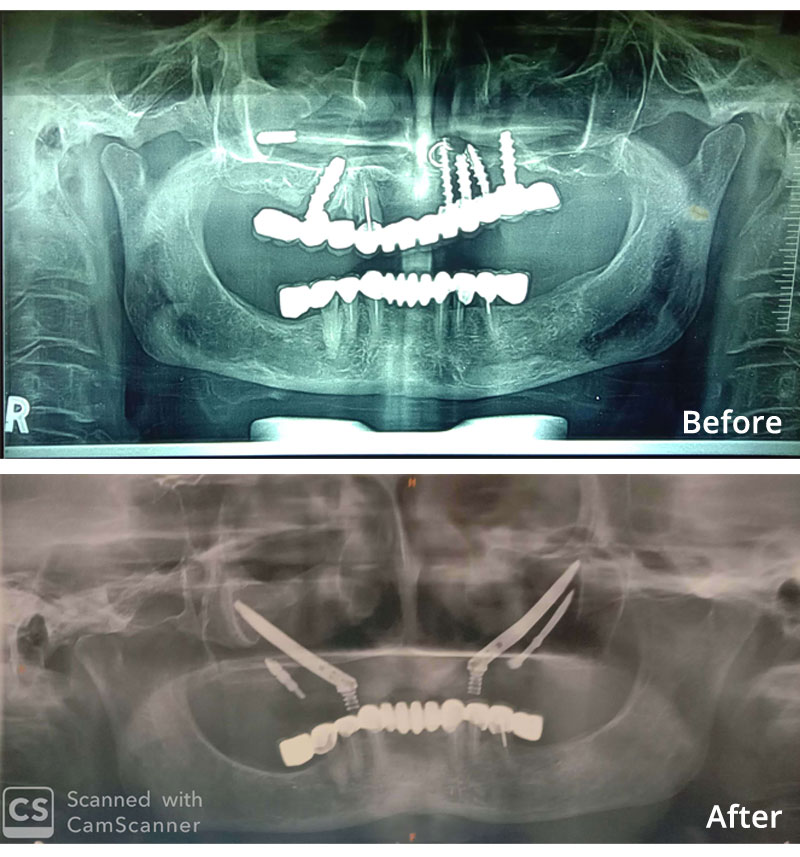
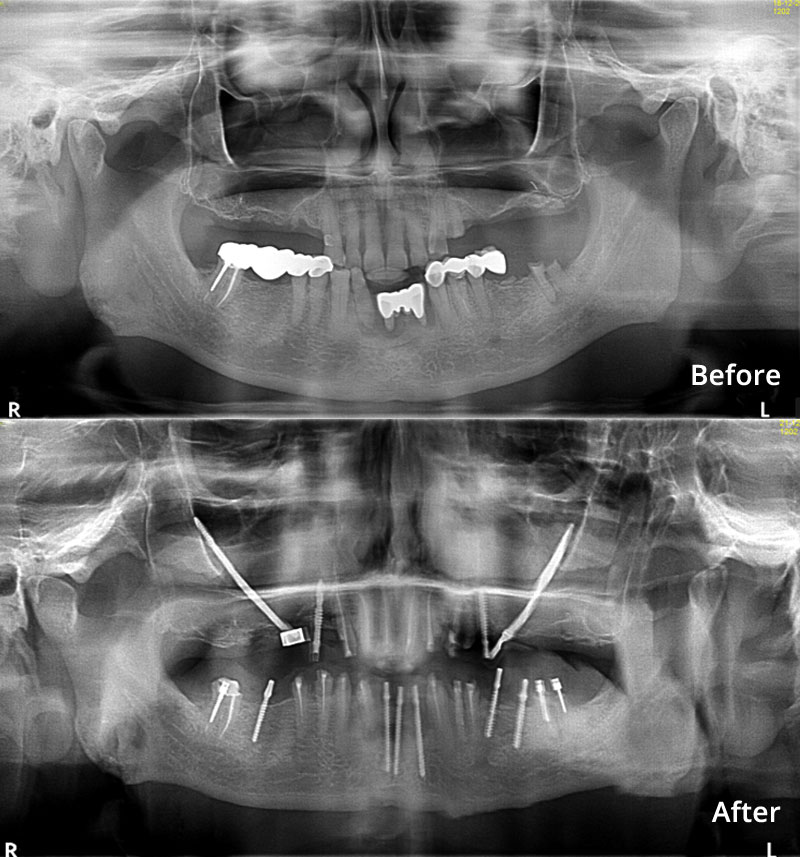
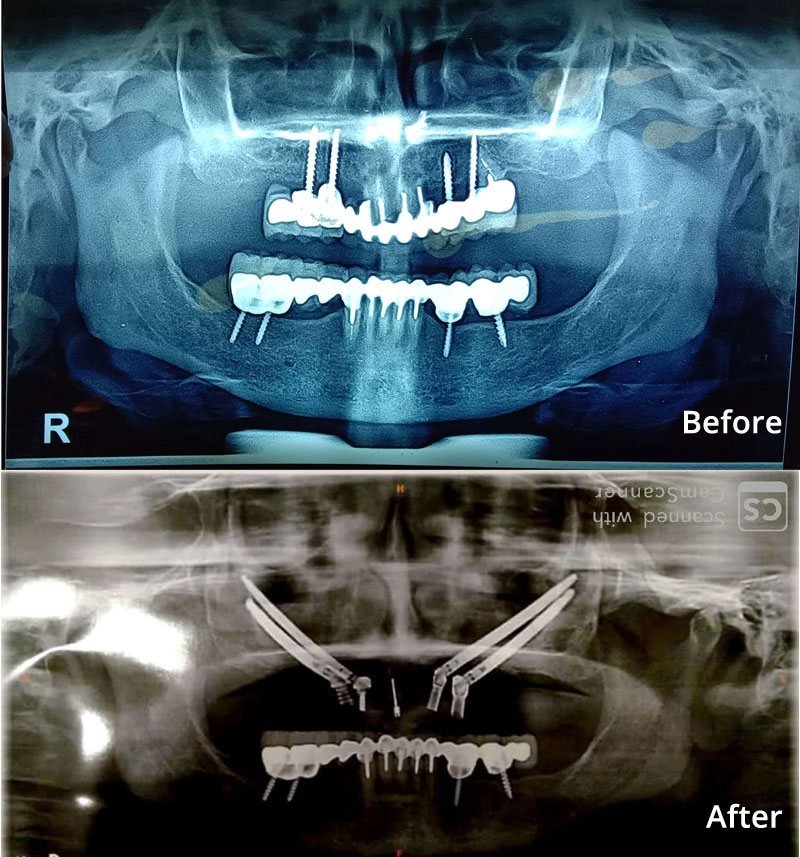
Zygomatic Implants in One Day
Zygomatic Implants in One Day | Before After Teeth

Edentulous Teeth

Full Mouth Makeover

Full Mouth Zygomatic Implants

Teeth in less bone

Zygomatic implant

Zygomatic Dental Implant Restoration

Zygomatic Dental Implantation
Case Studies
Successful Recovery after Zygoma Implant Surgery
- Rest – You’ll want to focus on resting as much as possible during the healing process. This is the best way to minimise the risk of complications and get back.
- Stay hydrated – Make sure you drink plenty of water to stay hydrated while you heal.
- Eat a nutritious diet – Eating a nutritious diet will help you recover quickly.
- Get plenty of rest – This will also help you to avoid infection and speed the healing process.
- Avoid smoking, drinking alcohol, and caffeinated beverages – Smoking and drinking alcohol will delay your recovery, and caffeine is diuretic and will dehydrate you.
- Find gentle physical activity – Regular gentle exercise can speed your recovery, but avoid strenuous activity to minimize the risk of bleeding.
- Keep the wound clean – Keep the wound site clean and covered with a bandage as instructed.
- Avoid stress– Stress can slow the healing process, so try to keep it at a minimum while you recover.
- Keep eye out for any signs of infection, swelling at wound site, and your surgeon if you have concerns.
- Avoid sun exposure – You’ll likely be taking antibiotics to reduce the risk of infection while healing. This means extra care to avoid sun exposure to avoid blistering and peeling.

“Zygomatic Implants are suitable even for patients who are advised that conventional implant treatment will not be possible due to less bone or no bone maxilla bone.”
News | Dentist in Mumbai

FAQs on Zygomatic Implant
Ask Your Questions Now!
What are the benefits of choosing zygomatic implants ?
The benefits of choosing zygomatic implants include avoiding the need for bone grafting in cases of severe upper jaw bone loss, providing a stable foundation for dental restorations even in challenging anatomical conditions, and offering a faster and more efficient tooth replacement option for patients with compromised bone structure. Zygomatic Dental Implants anchored into the cheekbone, also known as Zygoma or Zygomatic Bone. These implants used in cases where the patient has a missing jawbone or the jawbone is soft and thin. Most patients above 45+ years end up losing a few or all of their teeth.
What is the recovery process like after zygomatic implant surgery?
After zygomatic implant surgery, patients may experience swelling, mild discomfort, and need to follow a soft diet. Regular follow-up appointments will be scheduled to monitor healing, and the recovery period can take several months before dental restorations are placed. Your overall health may affect the success rate of dental implants. Poor oral hygiene is a big reason why some implants fail. It is important to floss and brush around the implants at least twice a day, without metal objects. Your dentist will give you specific instructions on how to care for your new implants. Additional cleanings of up to four times per year may be necessary to ensure that you retain healthy gums.
How is orthognathic surgery planned, and what are the steps involved in the procedure?
Orthognathic surgery is meticulously planned using advanced imaging techniques, including X-rays, CBCT scans, and 3D digital models. The procedure involves making controlled incisions in the jawbone, repositioning the jaw segments, and stabilizing them with screws or plates, followed by a healing period and postsurgical orthodontic treatment to achieve optimal jaw alignment and function.
How long does it take to see the final results after orthognathic surgery?
The final results after orthognathic surgery may become more apparent after the initial swelling subsides, which typically takes a few weeks to a few months. However, complete healing and stability of jaw alignment may take several months to a year for the full extent of the results to be visible.
All You Need To Know?
In the event that you have been investigating getting dental implants, you may have run over a particular sort of implant known as zygomatic implants. Since this kind of implant is relatively new, odds are you may not know particularly about zygomatic implants and how they contrast with customary dental implants. Along these lines, here is all you require to think about zygomatic implants.
Who requires zygomatic implant?
Zygomatic Implants are attached to the cheekbone?
Zygomatic implants are named for the bone that they are embedded into. All the more explicitly, zygomatic implants are embedded into the zygomatic bone, known as the cheekbone. Contrasted with the maxillary bone, the zygomatic bone is a lot denser and gives a strong anchor to highlight the implant.
Need for Zygomatic implants over conventional?
- Poorer quality of bone in the upper jaw due to age or bone resorption.
- Decreased width and height of bone over time.
- Multiple failed implants on upper jaw.
- Bruxism or night grinding habit due to stress.
- The presence of air spaces or sinus in the upper jaw.
Advantages of Zygomatic Implant?
- Less intrusive than bone joining and sinus lift tasks
- One-stage technique
- Quicker healing time
- Effective option for patients who cannot have traditional implants
- Immediate loading with SAPTeeth™ protocol
- Regular looking, long-term success rate
- Amazing option in contrast to false teeth
- Prompt improvement for all intents and purposes, solace and capacity
Zygomatic implants failures?
Failure rates are more in patients with diabetes, periodontal disease, low immunity, heavy smokers, reduced compliance of oral hygiene. Before planning for dental implants oral cavity should be free from periodontal disease. Therefore, the survival and success rates of dental implants will never outgrow the survival rate of healthy clean teeth. Whereas Dental implants serve as an excellent treatment modality and are supposed to replace missing teeth and not meant to replace natural teeth.
What are Zygomatic Dental Implants?
Zygomatic Dental Implants are a way to replace a missing tooth with something that looks, feels and mimics a natural tooth. Neither you nor anyone else can tell the difference. Dental Implants have been around since the 1950s and in the last 10 years have been perfected where is A.D.A (American Dental Association) acceptance and a very high rate of success.
Zygomatic implants are new alternatives that may be used to avoid bone grafting and sinus lift and therefore contribute to a shorter and more comfortable treatment. These implants are anchored in the upper jawbone, which is close to the zygoma bone (cheekbone). Zygomatic Implants are much longer in comparison to the traditional implants and may range from 30 mm up to 60 mm. One of the main reasons for zygomatic implant placement is due to bone resorption or reduction in bone quality of the upper jaw.
In most cases, zygomatic implants can be placed surgically within a day along with permanent teeth fixing.
How much do zygomatic implants cost?
The investment of the zygomatic implants may not only turn out to be cheaper financially but also by effort which you will take for bone grafting. In India the cost is approximately 10 times lower when compared with USA.
How Do Zygomatic Implants Work?
Zygomatic Implants are attached to the area of the jawbone close to the zygoma bone. The longer implant is placed from inside the mouth and it goes through or right next to the sinus and anchors into the zygomatic bone.
We can now immediately load zygomatic implants with fixed teeth.
Are Zygomatic Implant successful?
The success and comfort of zygomatic implants can be much higher than the convention removable alternate. Also in cases of bone loss zygomatic options maybe the only way to restore a smile with fixed teeth.
Are they painful?
NO, these implants are much less uncomfortable than having a tooth pulled. Most patients go back to work the next day and report only mild discomfort. Local anesthesia is given and a post-treatment prescription is also advised.
Can you have dental implant in severe bone loss?
Bone resorption along with lower bone quality often makes it impossible to place dental implants in the posterior maxilla. Zygoma implants are then advised to such patients wherein the implant is anchored into the zygomatic bone rather than the maxilla.
I’ve been told by my dentist that my jaw bone is not “dense.” Will a dentist be able to get a fixed teeth solution state in such a situation?
After utilizing the standard MDI’s in his practice, Dr. Bulard quickly anticipated this type of dental patient, and as a result, has taken steps to expand IMTEC Corporation’s original production offering to provide an MDI MAX implant. Equipped with the same dimensions as the standard ones, the MAX has a different thread design that enables the implant to bite into the softer bone and hold. It’s ideal for a patient whose bone density is lacking.
What type surgery is involved?
A single, minimally invasive surgery is needed for the insertion of the MDI mini implants. They have then put into immediate biting or “loading” function thanks to their “self-tapping” design, thereby anchoring a fixed bridge system. As a result, it is often possible to provide complete mini implant services in a single office visit.
Mini dental implants clearly represent an enormous breakthrough for the dental implant specialty as the most patient-friendly, cost-effective, proven implant system available today.
Can There Be Any Complications For medically Compromised Patients?
During the consultation phase, the doctor will note the medical conditions and will adjust the treatment approach accordingly. There are no absolute contraindications to zygomatic implants.
Do I have to get hospitalized for the procedure?
Hospitalization is the exception and not the rule. 95% of patients can be managed under local anesthesia in the dental clinic itself. Anxious patients are helped with nitrous oxide sedation or intravenous sedation techniques. Few patients, especially those requiring extensive bone grafting, will require general anesthesia. If you can tolerate a tooth extraction, you can cope with implantation.
Will I have pain and discomfort?
Pain and discomfort will be within tolerable limits. You will be given adequate medication after the procedure. In most cases a minor OTC analgesic is sufficient.
How do I care for post implant treatment?
Your overall health may affect the success rate of dental implants. Poor oral hygiene is a big reason why some implants fail. It is important to floss and brush around the implants at least twice a day, without metal objects. Your dentist will give you specific instructions on how to care for your new implants. Additional cleanings of up to four times per year may be necessary to ensure that you retain healthy gums.
Can anyone receive dental implants?
You must be in good health and have the proper bone structure and healthy gums for the implant to stay in place. People who are unable to wear dentures may also be good candidates. A dental implant is important for you to feel comfortable, confident and to get good aesthetics.
If you have teeth clenching or a grinding habit (bruxism), if your oral hygiene is poor, if you smoke heavily or if you have had radiation therapy to the jaw region the success rate for implants decreases.
People with well-controlled diabetes, blood pressure or other general medical conditions can have implants.
Does implant treatment take a very long time?
With proper planning and expertise, the implant treatment can be completed on the same day. The fixing of the tooth can also be done immediately.
How elaborate is the procedure?
Another reason zygomatic implants are important is because they don’t require any surgery to the face. The process done without any cutting or scraping, so it’s virtually painless and less invasive than other procedures. Zygomatic implants also offer natural-looking results without having to undergo major surgery. What’s nice about zygomatic implants is that they offer something for those who were once told that due to less bone dental implants are not possible. Having a viable alternate to removable complete denture with fixed teeth is the best possible scenario for missing teeth.
Who is Eligible for Zygomatic Implants?
Zygomatic implants are not for everyone. You may be eligible for this treatment if you have limited or virtually no bone structure, missing teeth or have lost teeth due to oral cancers. If you have been advised bone grafting of upper jaw then zygomatic implants should be considered as they may offer higher success rate.
What Are Zygomatic Implants?
What do zygomatic implants do?
What Are Some Possible Side Effects?
There are a few possible side effects that can come with zygomatic implants. This includes things like temporary change in speech and swelling, and the need to take anti-inflammatory medications. Many of these potential side effects will go away within a few weeks. However, there is a chance that they could linger longer if you don’t seek proper medical attention or follow up.
Who is a candidate for dental zygomatic implants?
Dental zygomatic implants are not typically used for missing teeth in the front of the mouth. Rather, they are typically used when you have lost your back molars or premolars. If you have lost all your teeth, and want to replace those missing teeth with dental crowns; dental zygomatic implant is a good option for you! If you are wearing complete dentures or have been told that you need a bone graft; then zygomatic implants are a better fixed option for you.
Do zygomatic implants fail?
Zygomatic implant failure is rare for missing teeth replacement. Each zygomatic implant is unique because each patient’s dental history is unique. The implant treatments represent the last and only option for patients suffering from severe bone loss. Its success if 96% in first 5 years.
How much does it cost to get zygomatic implants?
The cost of zygomatic implants is typically between $1500 to $2500. Remember that the procedure takes only one visit to complete and will last for many years to come.
Insurance coverage for zygomatic dental implants
The availability of dental insurance coverage for zygomatic implants varies from one plan to another. Some plans offer full coverage, while others have no coverage for this procedure. In India, most of the medical insurance, do not cover the process of zygomatic implants. But in case if you have lost the bone and teeth due to tumor or cancers then the rehabilitation may also be covered.
Is Conscious Sedation needed for these implants?
Conscious Sedation is a part of the dental treatment process which helps to establish a relaxed, easy and calm environment through the utilisation of sedative drugs. Dental implants are a great solution for people who have lost teeth. Conscious Sedation can make the process easier. But before you decide to do sedation, make sure you understand the benefits and shortcomings so you can make an informed decision. Now that you understand what dental implants are and what sedation dentistry is, you can decide if it’s a good option for you. When you understand the process and the benefits, it’ll be much easier to make the right decision for you.
Recovering from Zygomatic implant surgery?
The actual recovery time after zygoma implant surgery will depend on your specific case and the type of surgery you receive. Generally, though, you can expect to be looking at anywhere from two to six weeks before you’re fully recovered.
Royal Associations
Find Us on Map
Follow On Social Media
All Rights Reserved © Royal Dental Clinics. Issued in public interest.| Contact: +91 99712 90903 | Email: info@royaldentalclinics.com

